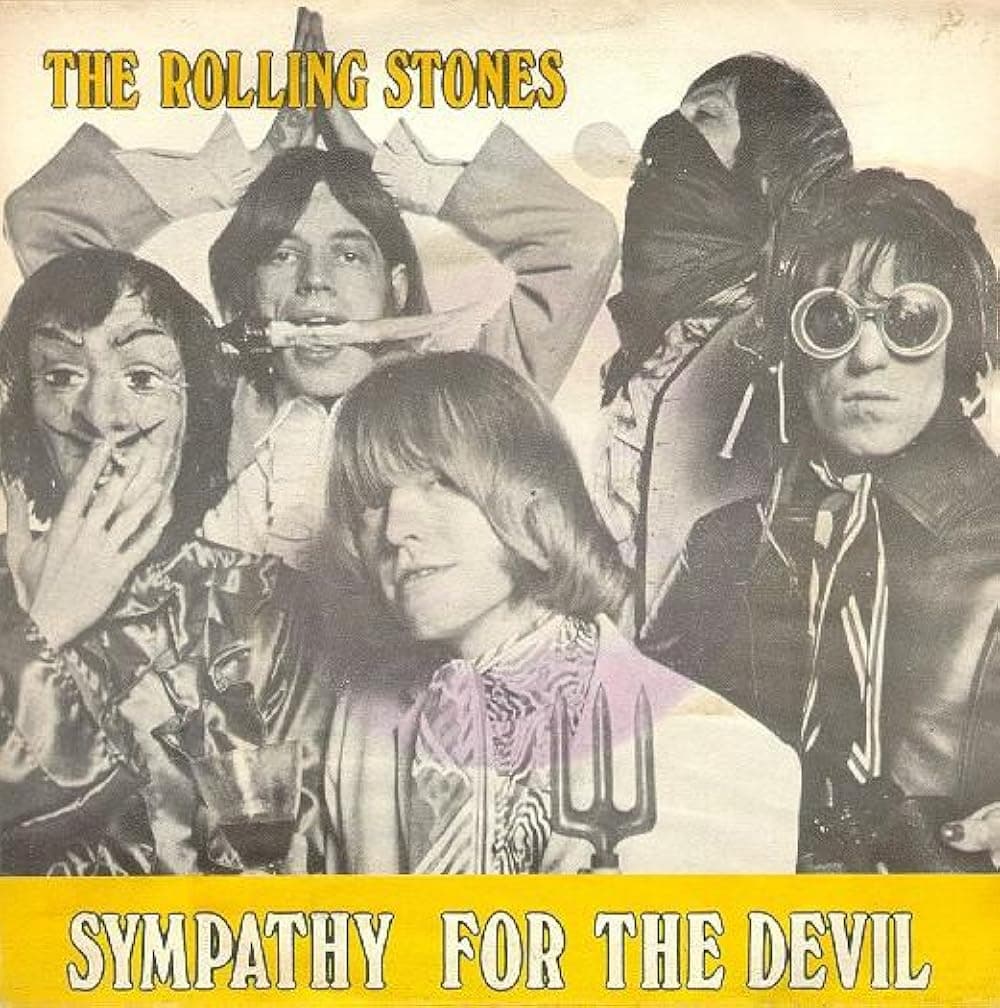
The Rolling Stones – Sympathy for the Devil: A Provocative Exploration of Human Evil and History’s Darkest Moments
“Sympathy for the Devil” is arguably one of The Rolling Stones’ most ambitious, controversial, and thought-provoking tracks. Released in 1968 on their album Beggars Banquet, the song stands as a bold commentary on the nature of human evil, the persistent presence of sin throughout history, and the unsettling ways in which people can become complicit in atrocity. Written by Mick Jagger and Keith Richards, “Sympathy for the Devil” is not just a song—it’s an exploration of moral ambiguity, a lyrical meditation on the darkness that permeates human behavior.
From the very first words, “Please allow me to introduce myself,” Jagger adopts the persona of the Devil, speaking directly to the listener. This opening line immediately sets the stage for a provocative narrative in which the Devil is portrayed not as a supernatural being, but as an observer and participant in the human condition. The song’s narrator claims responsibility for some of history’s most infamous and brutal acts: wars, assassinations, and crimes against humanity. This perspective offers a unique and chilling interpretation of history, as the Devil expresses both pride and a certain detached enjoyment in the suffering caused by human actions.
The lyrics are both unsettling and powerful in their depiction of evil as not something external, but something woven into the fabric of human existence. “I stuck around St. Petersburg / When I saw it was a time for a change,” Jagger sings, referencing the Russian Revolution and the violence that accompanied it. Throughout the song, he recounts various moments in history, from the crucifixion of Christ to the assassination of John F. Kennedy, with the Devil’s involvement in these events serving as a metaphor for the darker impulses inherent in mankind.
Musically, “Sympathy for the Devil” is as ambitious as its lyrical content. The song opens with a striking percussion-driven rhythm that evokes a hypnotic, almost ritualistic atmosphere. Charlie Watts’ drumming is a standout element, propelling the song forward with a constant, insistent beat. The addition of congas and percussion instruments—courtesy of percussionist Rocky Dijon—further reinforces the song’s primal, unsettling energy. The rhythm is almost trance-like, drawing the listener into the hypnotic sway of the Devil’s narrative.
The song’s instrumental layers build in intensity as the verses unfold, creating a sense of unease that matches the dark themes being explored. The musical composition takes on an almost celebratory tone during the chorus, where Jagger repeatedly sings, “Pleased to meet you / Hope you guess my name,” in a way that mirrors the seductive power of evil. The song’s rhythmic complexity, combined with the dissonant harmonies of Keith Richards’ guitar work, adds to its unsettling impact. The layers of sound create a feeling of tension, as if the listener is being slowly drawn into the grip of evil.
Jagger’s vocal delivery is key to the song’s power. His performance is charismatic yet sinister, as he alternates between a playful, almost flirtatious tone and a more ominous, commanding presence. He embodies the Devil with an unsettling confidence, luring the listener in with his charm while subtly revealing the true nature of the character. The song’s repeated refrain of “Who’s to blame?” adds to the moral ambiguity of the lyrics, forcing the listener to confront their own complicity in the world’s violence and suffering. The Devil, as presented in the song, is not just an external force but a reflection of the darker sides of human nature.
“Sympathy for the Devil” is a song that both provokes and challenges. It raises questions about the nature of evil, the role of human agency in the world’s suffering, and the uncomfortable ways in which violence and sin become woven into the historical fabric. The song’s combination of provocative lyrics, hypnotic rhythms, and Jagger’s sinister performance make it one of The Rolling Stones’ most enduring and powerful statements.
In many ways, “Sympathy for the Devil” marks a turning point in the band’s evolution. While their earlier work had often focused on themes of love, relationships, and youthful rebellion, this song takes a more philosophical and daring approach. It reflects the turbulent cultural landscape of the late 1960s, with its growing disillusionment and unrest. The song’s exploration of violence, power, and the human propensity for cruelty was groundbreaking at the time and remains as relevant today as it was upon its release.
“Sympathy for the Devil” is a timeless classic—an audacious, dark exploration of the moral complexities of human history, wrapped in an infectious, rhythmically mesmerizing package. Through its complex musicality and provocative lyrical content, it continues to be one of The Rolling Stones’ most iconic and thought-provoking tracks.